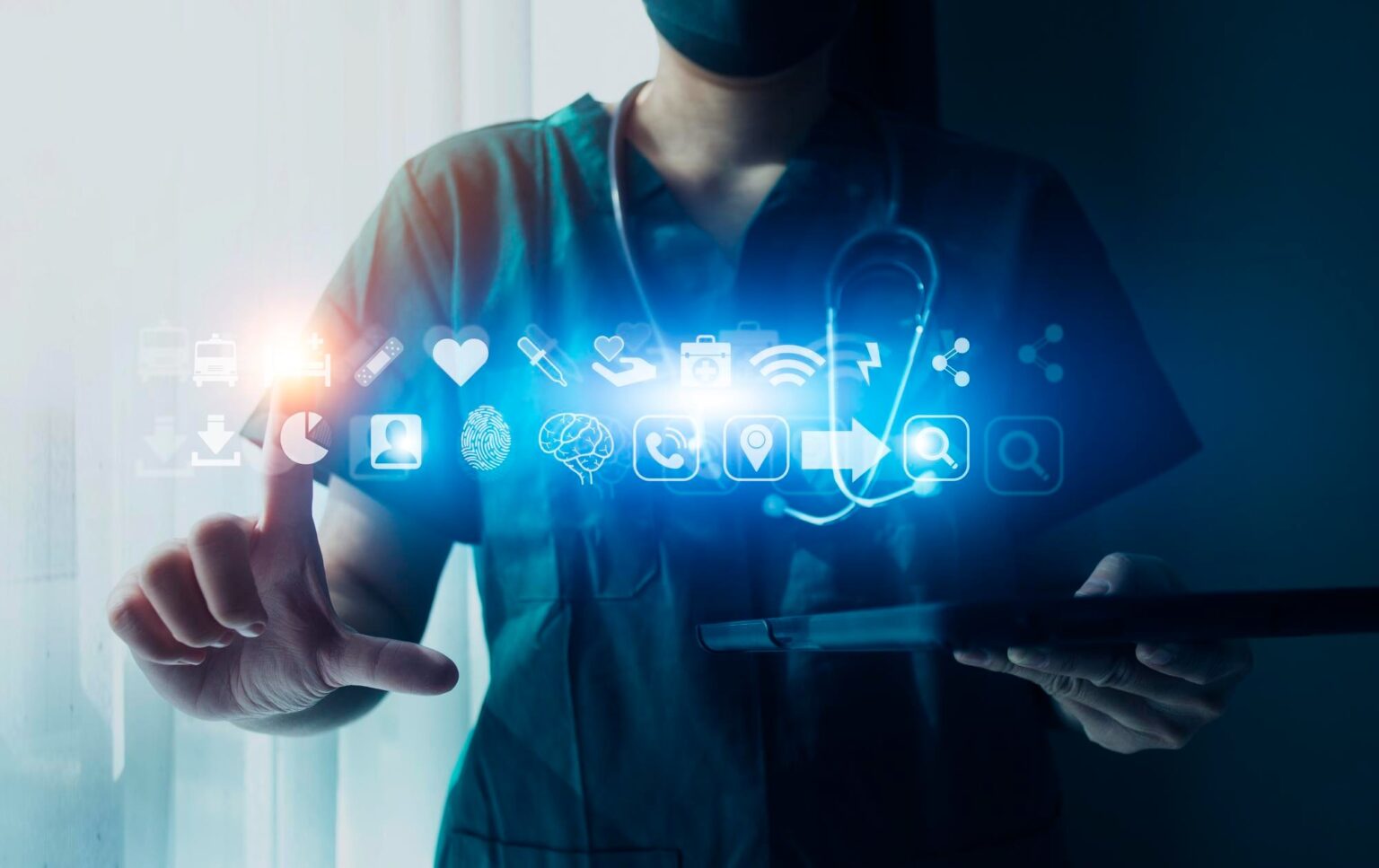The Internet of Medical Things (IoMT) refers to the integration of medical devices, sensors, software applications, and healthcare systems through connected networks. This interconnected ecosystem of devices and systems aims to improve patient care, enhance healthcare delivery, and enable remote monitoring and treatment. Here are key aspects of the IoMT and its applications in healthcare:
- Remote Patient Monitoring: IoMT enables the continuous monitoring of patients’ vital signs and health parameters outside of traditional healthcare settings. Wearable devices, such as smartwatches, fitness trackers, and biosensors, can collect real-time data on heart rate, blood pressure, glucose levels, sleep patterns, and physical activity. This data can be transmitted to healthcare providers for remote monitoring and early detection of health issues.
- Chronic Disease Management: IoMT plays a vital role in managing chronic diseases such as diabetes, cardiovascular conditions, and respiratory disorders. Connected devices and mobile apps allow patients to monitor their symptoms, track medication adherence, and receive personalized feedback. Healthcare providers can remotely monitor patients’ health data, intervene when necessary, and provide timely care.
- Telehealth and Telemedicine: IoMT enables the delivery of healthcare services remotely through telehealth and telemedicine platforms. Patients can consult with healthcare professionals through video conferencing, share health data in real-time, and receive remote diagnoses, treatment recommendations, and follow-up care. This approach enhances access to healthcare services, especially for individuals in rural or underserved areas.
- Medication Management: IoMT devices can assist in medication management, ensuring proper adherence and dosage control. Smart pill dispensers can remind patients to take their medications at the right time and provide alerts if a dose is missed. Connected inhalers and insulin pens can track usage, dosage, and inhalation technique, providing feedback and insights to patients and healthcare providers.
- Asset and Inventory Tracking: IoMT technologies can be used to track and manage medical equipment, supplies, and inventory in healthcare facilities. RFID tags and sensors can monitor the location, usage, and maintenance of equipment, optimizing workflow, reducing costs, and improving efficiency.
- Health Data Analytics and Decision Support: The IoMT generates vast amounts of healthcare data that can be analyzed to gain insights and support clinical decision-making. Data analytics and artificial intelligence (AI) techniques can process and interpret patient data, providing predictive analytics, risk stratification, and treatment recommendations. These tools can aid healthcare providers in diagnosing conditions, identifying trends, and tailoring personalized treatment plans.
- Emergency Response and Patient Safety: IoMT devices can play a critical role in emergency response and patient safety. Connected devices can send alerts and notifications to healthcare providers or emergency responders in case of abnormal health parameters, falls, or other critical events. This timely information enables rapid intervention and ensures patient safety.
- Data Security and Privacy: With the widespread adoption of IoMT, ensuring data security and patient privacy is crucial. Healthcare organizations must implement robust security measures to protect patient data from unauthorized access and breaches. Data encryption, secure communication protocols, and adherence to privacy regulations are essential to maintain patient trust.
The IoMT holds great potential to transform healthcare by enhancing patient monitoring, improving chronic disease management, enabling remote care, and providing valuable health insights through data analytics. As technology continues to advance, the IoMT will play an increasingly significant role in delivering personalized, accessible, and efficient healthcare services.



